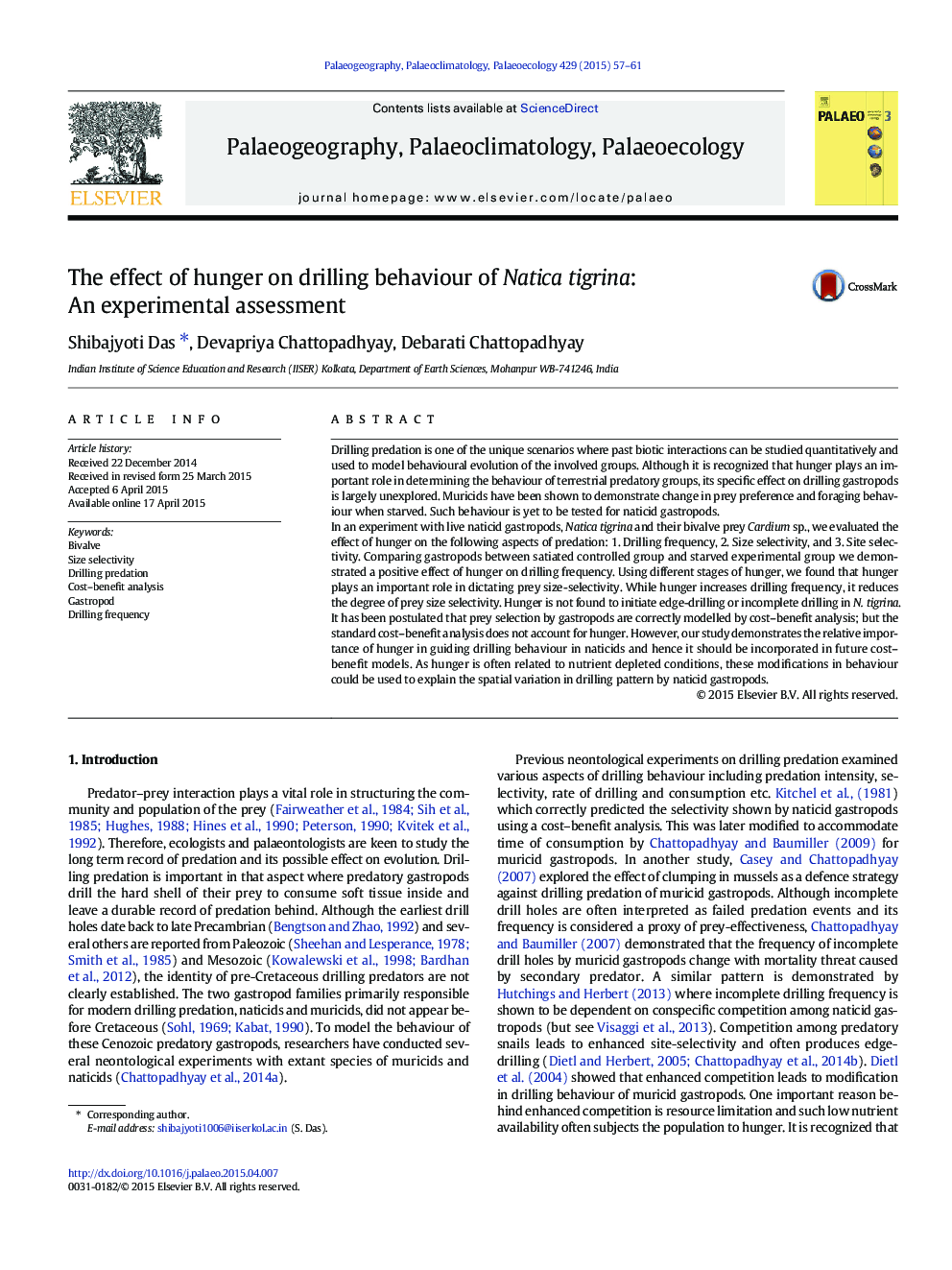| کد مقاله | کد نشریه | سال انتشار | مقاله انگلیسی | نسخه تمام متن |
|---|---|---|---|---|
| 4465966 | 1622161 | 2015 | 5 صفحه PDF | دانلود رایگان |

• We studied the effect of hunger on various aspects of naticid drilling.
• Natica tigrina shows higher drilling frequency when hungry.
• Hunger reduces the prey size selectivity by Natica.
• It does not initiate incomplete or edge drilling.
Drilling predation is one of the unique scenarios where past biotic interactions can be studied quantitatively and used to model behavioural evolution of the involved groups. Although it is recognized that hunger plays an important role in determining the behaviour of terrestrial predatory groups, its specific effect on drilling gastropods is largely unexplored. Muricids have been shown to demonstrate change in prey preference and foraging behaviour when starved. Such behaviour is yet to be tested for naticid gastropods.In an experiment with live naticid gastropods, Natica tigrina and their bivalve prey Cardium sp., we evaluated the effect of hunger on the following aspects of predation: 1. Drilling frequency, 2. Size selectivity, and 3. Site selectivity. Comparing gastropods between satiated controlled group and starved experimental group we demonstrated a positive effect of hunger on drilling frequency. Using different stages of hunger, we found that hunger plays an important role in dictating prey size-selectivity. While hunger increases drilling frequency, it reduces the degree of prey size selectivity. Hunger is not found to initiate edge-drilling or incomplete drilling in N. tigrina.It has been postulated that prey selection by gastropods are correctly modelled by cost–benefit analysis; but the standard cost–benefit analysis does not account for hunger. However, our study demonstrates the relative importance of hunger in guiding drilling behaviour in naticids and hence it should be incorporated in future cost–benefit models. As hunger is often related to nutrient depleted conditions, these modifications in behaviour could be used to explain the spatial variation in drilling pattern by naticid gastropods.
Journal: Palaeogeography, Palaeoclimatology, Palaeoecology - Volume 429, 1 July 2015, Pages 57–61